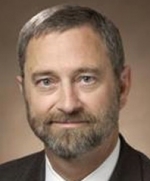At the Marcus Institute, the focus is on spending time learning about their veteran patients and finding as accurate a diagnosis as possible. Instead of an in-and-out mentality, their intention is to gather as much information as possible to give each patient as strong a chance as possible to recover from their injury.
To help their patients find success, and to aid the financial health of the Institute, the veterans are paired with athletes with similar symptoms as the veterans. This often results in very tight and supportive relationships between those paired together.
Learn more about some of the treatments available for those recovering from brain injury and PTSD using our Treatment Hub.
Watch more videos from Dr. James Kelly.
The Marcus Institute is actually, first and foremost, for the veterans referred to us who have persistent symptoms that, regardless of the care they've been given or provided, has not fully relieved the symptoms. So when that individual comes to us they have a certain sense of hope. There's something different. Perhaps, here we're already you know, even just within this one many months that we've been open, here in less than a full year we have a reputation that is out there a bit in their military veteran populations, such that those who have benefited from the program are telling others. And so there's an expectation that maybe something good could come from coming to such a place. And so when they come to us with very detailed diagnostic workups in neurology and psychology, neuropsychology trauma, counseling speech and language pathology, and vestibular physical therapy, and on and on. Those actually help understand the nature of a person's underlying problems. The condition in granular detail and in typical American medicine, that's not the way it's done. The idea is a high throughput volume system in healthcare. Get patients in and out of the system. We flipped that upside down. The patient stays and everybody is paying attention to that one patient in great detail until we actually find the underlying problems and start chipping away at what those are. That's how you make success happen under the circumstances. So we're trying to change that paradigm, first of all, as to what happens medically. The other part of it, that we're asked to do, is this idea of sustainability. So it doesn't always require an influx of philanthropic support to maintain such a program, but that you can actually have others come into the program that help support it financially. One of the the ways we're doing that is to have retired athletes, who themselves have many of the same symptoms as our military veterans, and join them in the groups and then the program together. But that athlete would then bring insurance and occasionally is in a position to donate to the care of another veteran in the program at some future point. And so when I proposed that to the Marcus Foundation leadership as a sustainability model, they said "yeah. Do that and go ... go try that." And based on the fact that some of what we had been doing early on in these Iraq Afghanistan wars was taking concussion care models from the sports world and applying that to the military. Now, we're actually pulling them both together and saying we have a setting which I couldn't do at NICoE, or certainly we're not going to be any retired pro athletes in that kind of a setting. Now, we have an opportunity to bring those two worlds together and it's interesting to me. I had hoped it would be like this, but the truth is when you bring that athlete and that military veteran together, it's almost like you can't unglue them. There they just are, you know, joined at the hip and they get it. They understand each other. They feel a kinship and a kind of a mutual respect that just changes the entire atmosphere. This video was produced by BrainLine thanks to generous support from the Infinite Hero Foundation.
This video was produced by BrainLine thanks to generous support from the Infinite Hero Foundation.
About the author: James Kelly, MA, MD, FAAN
James Kelly, MA, MD, FAAN, a neurologist, is one of America’s top experts on treating concussions. He currently serves as Executive Director of the Marcus Institute for Brain Health.

